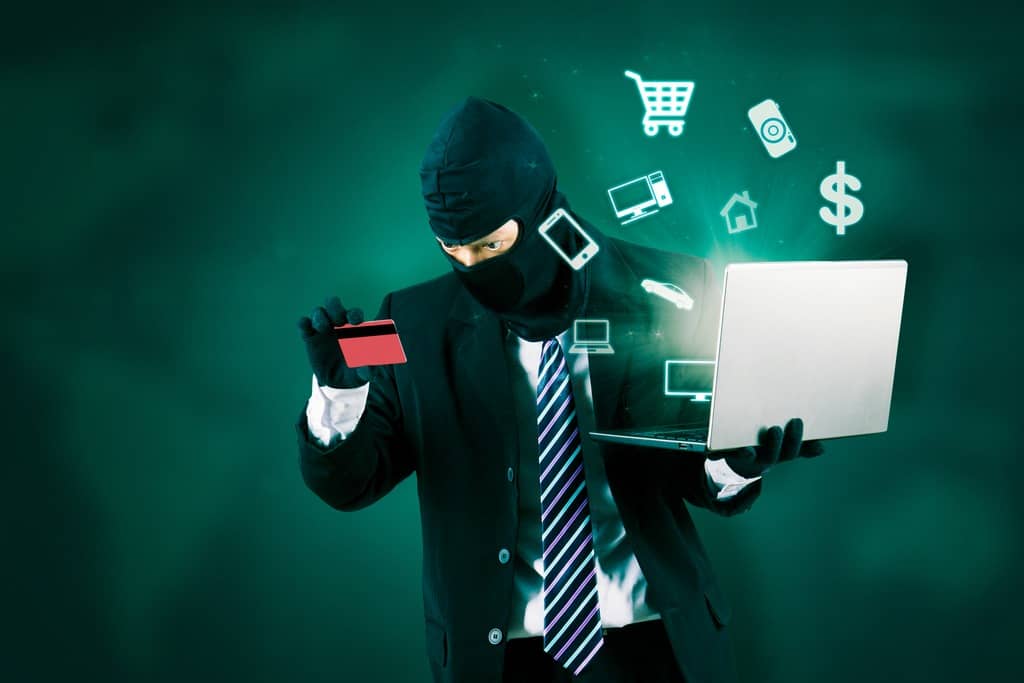
When it comes to eCommerce, dropshipping sparks debates. Many wonder, “Is dropshipping a scam?” This question arises because of misconceptions and doubts surrounding this business model.
To understand whether dropshipping is a scam, it’s essential to delve into its core concepts and separate facts from fiction. This article will provide helpful insights about dropshipping scams. You’ll have a clearer picture of the legitimacy of dropshipping as an eCommerce venture. In addition, we will help you make informed decisions in the dynamic world of online business.
What Is Dropshipping And How Does It Work?
Dropshipping is a business model that allows selling products online without managing inventory. This approach is popular due to its simplicity and low upfront costs.
In traditional retail, businesses buy products in bulk and store them until they sell out. In dropshipping, there is no need to purchase in advance. Instead, when a customer buys online, we order the product from a supplier or manufacturer. Then, the supplier ships the product directly to the customer.
This way, we never handle the actual product. Moreover, there is no need for warehousing space and costs. We also don’t manage shipping and handling. And because we only purchase the product after selling it, we don’t tie up our funds in unsold stock.
In addition, dropshipping offers a wide range of products to choose from. We can offer a diverse catalog without worrying about storage space or overstocking. Because we don’t invest heavily in inventory, the barrier to entry is much lower than in traditional retail.
Dropshippers make profits from the difference between the retail price they charge customers and the wholesale price they pay to suppliers. Therefore, dropshippers are the middleman between customers and suppliers. Their job is to identify winning products, partner with reliable suppliers, and run marketing.
Is it legal, you wonder? Absolutely. Dropshipping is legal. Many retail stores and marketplaces, like Kohl’s, Wayfair, and AliExpress, take advantage of this model. For instance, sellers on AliExpress are essentially dropshippers. These intermediaries connect Chinese suppliers with buyers. So, if you ever made purchases on these platforms, you might have bought products from dropshippers without realizing it.
If everything is so good, why do some call it a dropshipping scam?
Is Dropshipping A Scam?

Dropshipping is not a scam. It is a business model like any other. However, misuse by some leads to scams.
The concern arises from how some individuals exploit it for fraudulent schemes. It’s crucial to differentiate the business model involving selling products without stocking inventory and the deceptive practices that some employ. The blame lies with those who misuse the concept but not with the concept itself.
In order to understand why people think dropshipping is a scam, we must address the misconceptions that have taken root.
Why People Think Dropshipping Is A Scam?
Dropshipping has gained both interest and skepticism in recent years. Because it is a low-cost, low-risk business model, misconceptions often arise due to unrealistic expectations. People often associate dropshipping with get-rich-quick schemes, which can lead to disappointment. By examining the various aspects and experiences, we can unravel the truth behind why some perceive dropshipping as a scam.
Firstly, unfamiliarity often leads to doubts. For people new to e-commerce, the idea of not holding physical inventory might seem unlikely. The concept of selling products you don’t have can seem shady and risky. The lack of direct control over inventory and shipping also raises questions about product quality and timely delivery, which can fuel concerns.
Furthermore, the dropshipping success rate could be higher. There are plenty of stories from unsuccessful dropshippers on the internet. Tales of delayed shipments, subpar products, and unresponsive suppliers dominate online forums. Such stories contribute to the belief that dropshipping is a get-rich-quick scheme, where only a few succeed while many are left disappointed.
The absence of a tangible storefront can also contribute to doubts about the legitimacy of dropshipping businesses. Traditional brick-and-mortar stores offer a physical presence, creating a sense of trust and credibility. In contrast, dropshipping stores exist online, making it easier for scammers to deceive unsuspecting customers. This lack of transparency can lead to suspicions about the authenticity of the business.
And these are only misconceptions about the dropshipping business model. The most obvious reason why people think dropshipping is a scam is scammers themselves. Some people twist the concept of dropshipping to use in their illegal schemes. Let’s review the most common dropshipping scams and how to avoid them.
Most Common Dropshipping Scams
Human imagination and creativity know no bounds. Regretfully, people often use them to take advantage of others. And eCommerce is no exception. Here, we will look at five of the most common dropshipping scams you can encounter. Moreover, we will provide helpful tips on how to avoid them.
1. No-Copyright-Safe Products

One of the common dropshipping scams involves selling high-end products from well-known brands like Apple, Nike, Louis Vuitton, etc., at incredibly low prices. However, these deals are not only too good to be true, but they involve counterfeit products. Furthermore, selling these products can lead to legal issues for the dropshipper.
How to avoid
Legitimate products, especially from renowned brands, come with a price tag that reflects their quality and authenticity. If a supplier offers them at rock-bottom prices, then something is amiss. In most cases, these are unauthorized replicas of genuine products. Besides, they are often of inferior quality.
When considering a supplier, ask for documentation that proves their products are genuine. Legitimate suppliers should be able to provide certificates of authenticity or proof of authorized distribution.
Some products are better avoided. Learn more in our Dropshipping products to avoid selling online guide.
2. Deceiving Samples

Deceiving samples is another common dropshipping scam. Some suppliers may send impressive, high-quality product samples to gain your trust. However, when you place orders, they might deliver lower-quality or counterfeit products. This scheme can damage your reputation and lead to customer complaints.
How to avoid
To protect yourself from falling victim to deceiving samples, make it a standard practice to order samples from potential suppliers before placing substantial orders. Here’s how to approach it:
- Multiple Samples: Don’t rely solely on one sample. Order multiple samples of different products. If possible, use different addresses and check the quality of products sent to them.
- Continuous Quality Checks: Periodically order samples in order to ensure the quality remains consistent.
- Transparent Communication: Clearly communicate your quality expectations and standards. In addition, establish an agreement that holds the supplier accountable for delivering products that match the sample’s quality.
- Alternative Suppliers: In case a provider fails to meet your quality standards after repeated orders, consider partnering with proven dropshipping suppliers.
3. Fake Suppliers

Fake suppliers deceive dropshippers by promising products, taking payments, and then disappearing without delivering anything in return. They create an illusion of legitimacy through websites, emails, or profiles on dropshipping platforms.
Dropshippers who place orders with these fake suppliers lose both the money invested in products and the potential profits they could have earned. What’s more, dealing with fake suppliers can lead to order delays, customer dissatisfaction, and negative reviews.
How to avoid
Conducting extensive research on potential suppliers. Look for online reviews, ratings, and feedback from other dropshippers. Furthermore, verify the supplier’s contact information, including their physical address and phone number. Legitimate businesses provide transparent contact details. Then, establish direct communication with the supplier. Ask questions about their products, terms, and order processes. Genuine suppliers will respond promptly and professionally.
Consider using well-established dropshipping platforms or marketplaces like SaleHoo, Shopify, or AutoDS. They often vet suppliers, reducing the risk of dealing with sellers. In addition, use secure payment methods and platforms that offer buyer protection. Some platforms provide escrow services and hold payments until the products are delivered and verified by the buyer.
Suppliers are an important part of the dropshipping business. Check out these 55 dropshipping suppliers to dropship on eBay/Shopify/Amazon/AliExpress.
4. Unreliable Sales Agents

Fraudulent sales representatives pose as intermediaries between dropshippers and suppliers. They may request to transfer payments for product orders directly to their bank accounts instead of the official company account. Usually, the reason for such a transfer is urgency and promise of better terms. Once a payment is made, these middlemen disappear with the money, leaving both dropshippers and suppliers with nothing.
How to avoid
Maintaining consistent communication with the supplier. First, ask for the official email address and contact information. Then, verify the legitimacy of these contact details and ensure they match the official company account.
Conduct all financial transactions, including payments for product orders, exclusively through the official company accounts provided by the supplier. In addition, always request invoices or purchase orders for all transactions. Legitimate suppliers should be able to provide formal documentation, which serves as evidence of the transaction.
5. Get-Rich-Quick Programs

Get-rich-quick programs are dropshipping scams that promise rapid and substantial profits with minimal effort or investment. They often target newcomers to the eCommerce world, enticing them with the allure of overnight success. These programs typically involve upfront fees for training, access to supposed “secrets” of success, or exclusive dropshipping opportunities. However, the value they provide is often minimal or nonexistent at best. In the worst case, the guru simply disappears with your money.
How to avoid
Approaching any program or course that promises unrealistic profits with caution. In case it sounds too good to be true, it likely is. Be skeptical of any program that guarantees quick wealth with minimal effort. Furthermore, look for reviews, testimonials, and feedback from others who have participated.
Understand that building a successful dropshipping business takes time and effort. Thus, invest in your education and continuously learn about eCommerce, marketing, and business management. There are many free and reputable resources available to help you grow your knowledge and skills.
How to Identify & How To Avoid Dropshipping Scams

As we mentioned, human imagination and creativity know no bounds. Thus, dropshipping scams are countless. Luckily, with common sense and financial responsibility, we can avoid most of them. Follow these tips, and you should be safe:
Verify The Supplier’s Identity
Verifying the supplier is fundamental in safeguarding your business against dropshipping scams. Scammers often pose as legitimate suppliers, so taking proactive measures is essential to ensure you deal with a genuine business.
First, check the supplier’s official information. Look for a physical address, phone number, and email address on their website or profile. Then, verify that these details are consistent and match official records. In many countries, businesses must register with government authorities. Check if the supplier has a valid business registration or licensing. It is a strong indicator of legitimacy. After that, reach out to the supplier directly using the contact information provided.
Ask the supplier for references or client testimonials. Legitimate suppliers should be willing to provide references from other businesses they have worked with. Additionally, join online dropshipping communities, forums, or social media groups where experienced dropshippers share their insights and experiences. Ask for opinions and feedback about the supplier from others who have worked with them.
In case the supplier is located nearby or in a region you can access, consider visiting their physical warehouse or office.
Don’t Fall For Unrealistic Deals
If an offer is too good to be true, then it almost sure is. Unrealistic deals often promise remarkable profits, but in reality, they are red flags for potential dropshipping scams. Falling for these deals can result in financial losses and harm your business’s credibility.
Always compare market prices for similar products. If the price offered is significantly lower, it’s a warning sign. Further, investigate your competitors in the same niche. If a supplier offers prices far lower than what your competitors can provide, be cautious. Also, consider the quality of the products offered because they might be subpar or counterfeit products.
Check Reviews
Reviews play a significant role in shaping a perception of reliability and quality. Therefore, scammers often create fake reviews to deceive potential customers. Identifying these reviews is crucial for making informed decisions.
Start by looking for patterns in the reviews. Fake reviews often use similar language and have identical or overly positive content. They also lack specific details about the product or service. Genuine reviews usually provide specific information about the product’s features, performance, and the customer’s experience.
Be suspicious of reviews posted in clusters or those with unusual posting dates. Real reviews are usually posted gradually over time. Also, pay attention to the tone of the reviews. If there is a mix of extremely positive and extremely negative reviews with little middle ground, it could be a sign of manipulation.
Cross-reference reviews on multiple platforms. Genuine reviews should be consistent across different platforms. If you suspect a review is fake, contact the reviewer for more information or verification.
Search For Recommended Suppliers
Recommendations from trusted sources can significantly reduce the risk of dealing with dropshipping scams. Often, these endorsements come from seasoned dropshippers who have already established successful partnerships. Therefore, establishing connections with fellow dropshippers can offer valuable insights into the industry.
If you have contacts or acquaintances who are involved in eCommerce, ask them for recommendations. And if not, we can join dropshipping forums, social media groups, and online communities. Ask for insights from members who have a proven track record in dropshipping.
Also, check review websites or eCommerce directories. Peer reviews can provide valuable insights into a supplier’s reputation. Many reputable dropshipping platforms and blogs maintain lists of recommended suppliers, vetted for legitimacy and product quality. Check if the platform you are using provides such a list.
Do Most People Get Scammed When Dropshipping?

No. Most people do not necessarily get scammed when dropshipping, especially if they follow essential precautions and best practices. Like any business venture, dropshipping has its own risks, but you can minimize them with the right approach.
By adhering to the following tips and principles, we significantly reduce the likelihood of falling victim to dropshipping scams:
- Thorough Supplier Research: Look for well-established suppliers with a proven reliability and quality track record. Check for online reviews and ratings to gauge their reputation.
- Avoid Counterfeit Products: Verify the authenticity of the products you intend to sell. Counterfeit or infringing items can lead to legal issues and damage your business’s reputation.
- Network and Seek Recommendations: Connect with experienced dropshippers in order to gather recommendations for reputable suppliers. There is no universal winning formula, but we can learn from successful dropshippers.
- Check for Red Flags: When dealing with suppliers, be vigilant for warning signs, such as unusually low prices, poor communication, and unclear return policies.
- Use Established Platforms: Consider using established dropshipping platforms and marketplaces that vet their suppliers for legitimacy.
- Secure Payment Methods: Use secure payment methods that offer buyer protection. This adds an extra layer of security in case any issues arise with your transactions.
- Stay Informed: Regularly read dropshipping blogs and follow eCom experts to keep up-to-date with industry trends and changes.
Follow these tips, and you should be safe from most dropshipping scams.
Frequently Asked Questions
Is Dropshipping Legal?
Dropshipping is legal as it is a legitimate business model where you act as a middleman between suppliers and customers. However, you must comply with laws and regulations related to business registration, tax collection, and consumer protection.
Why Do Many Dropshippers Fall Into Scams?
Many dropshippers encounter scams when they fail to conduct comprehensive due diligence on potential suppliers. Inadequate research, lack of experience, and a rush to start the business can make them vulnerable to fraudulent or unreliable sources, leading to financial losses and damaged reputations.
Is Dropshipping Worth It For Beginners?
Dropshipping can be a viable option for beginners. Still, success largely depends on factors like product selection, supplier reliability, and effective marketing strategies. Therefore, beginners should invest time in learning the ropes, selecting trustworthy partners, and developing a well-thought-out business plan to increase their chances of making dropshipping worthwhile.
Conclusion
In summary, dropshipping can be a legitimate and profitable business. If approached with caution and thorough research, that is. While scams do exist, they can be avoided by following best practices, seeking recommendations, and choosing reliable suppliers.
Success in dropshipping, especially for beginners, is achievable with the right strategies and a commitment to learning and growth. By staying informed and vigilant, we can harness the potential of this e-commerce model while avoiding dropshipping scams.
And to help you with that, we recommend the following articles:

